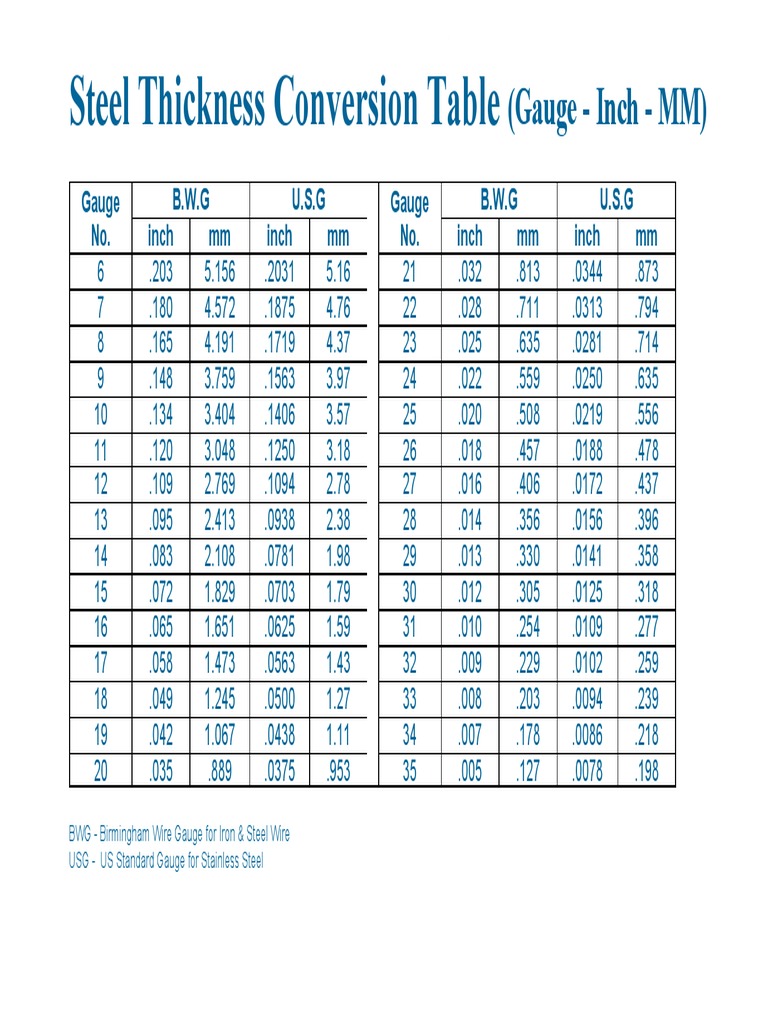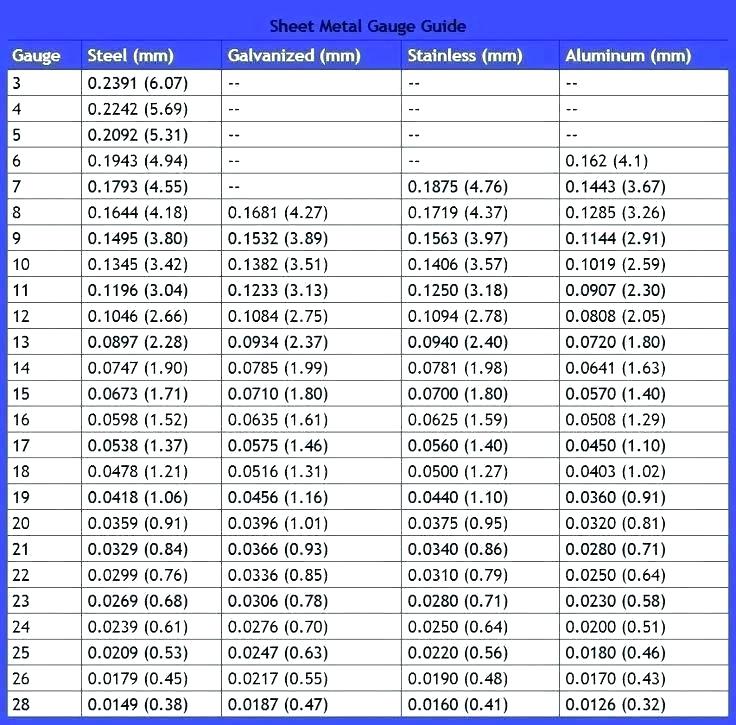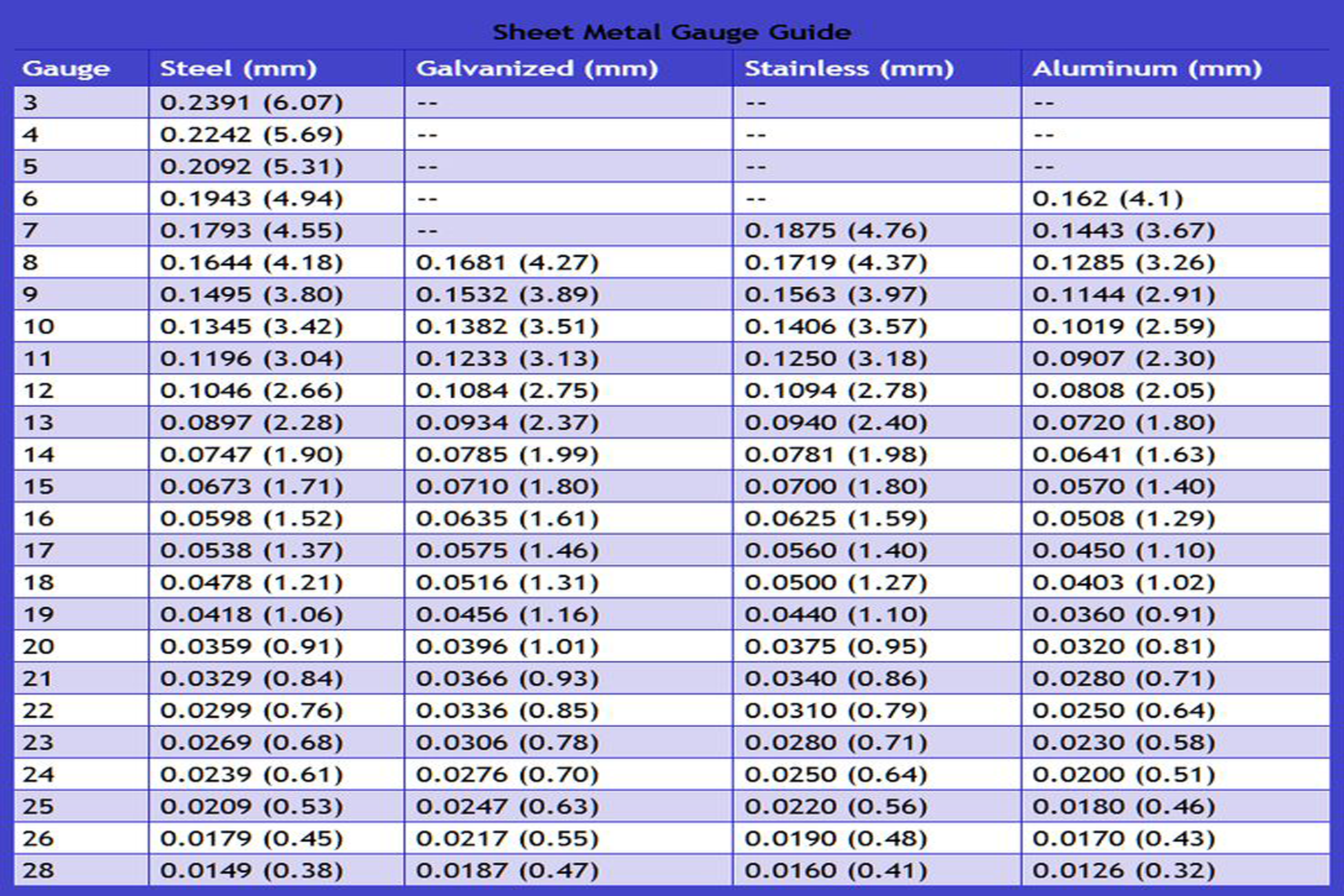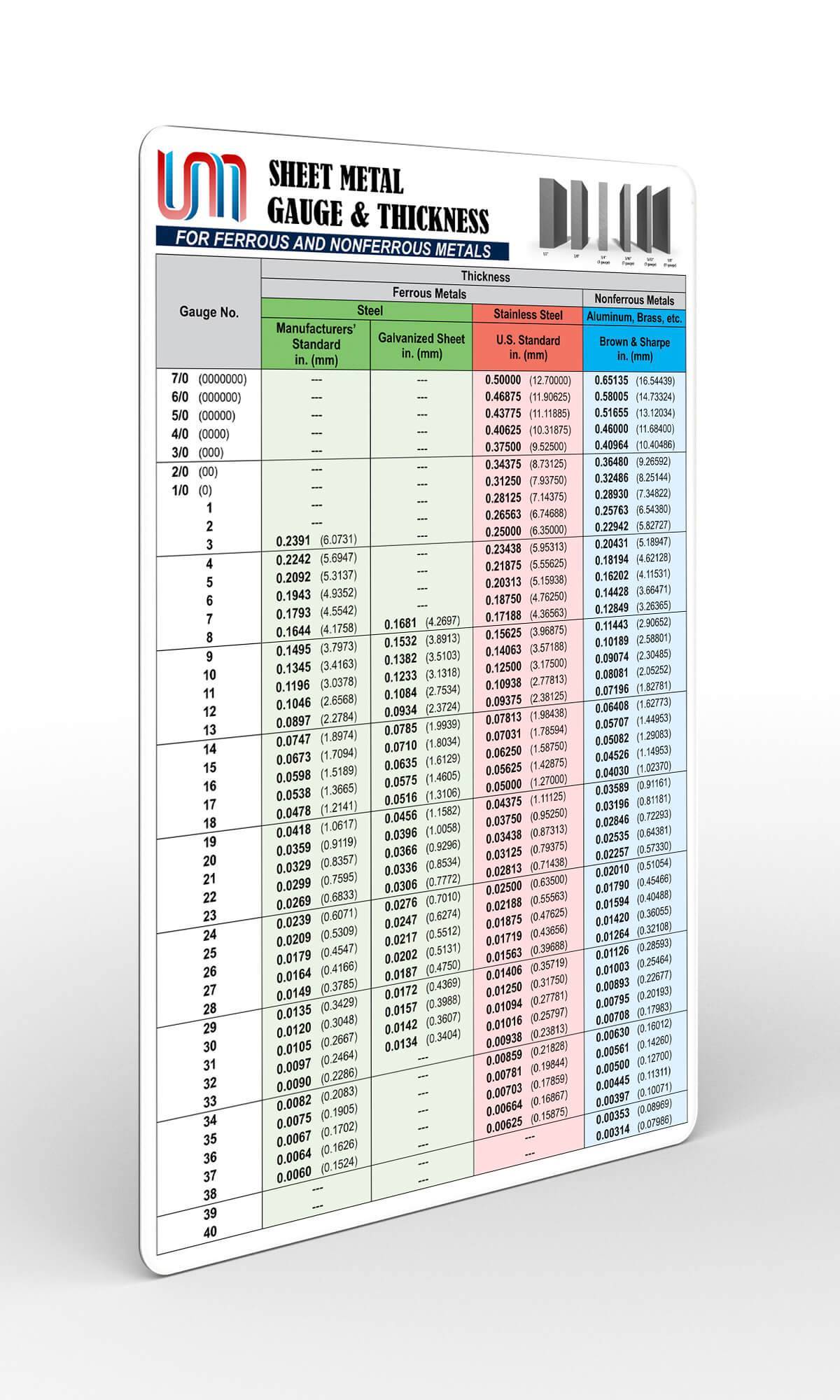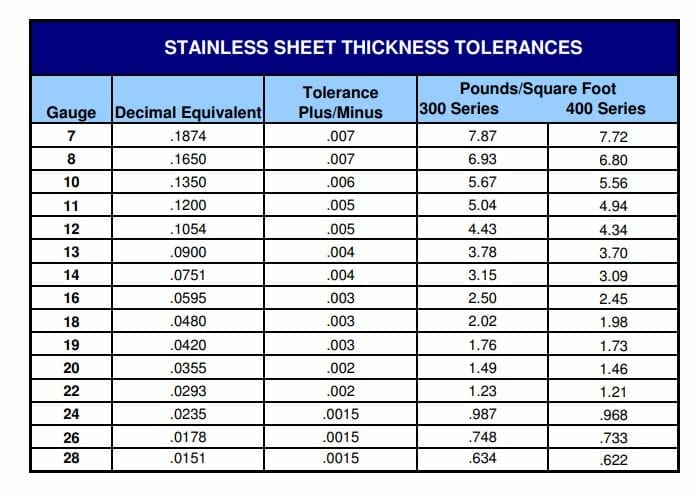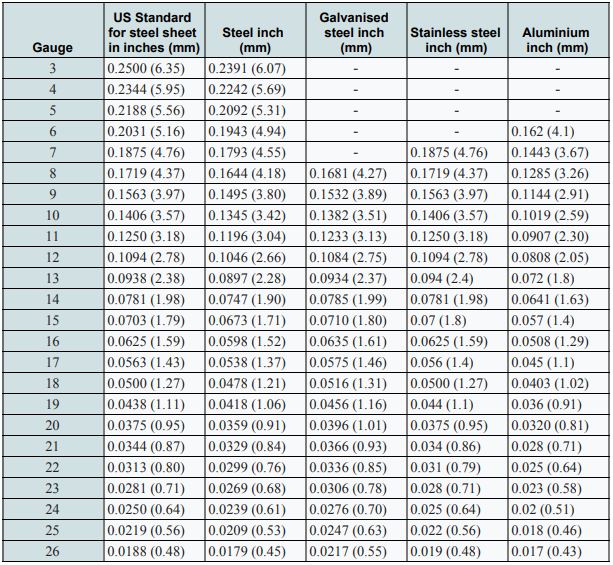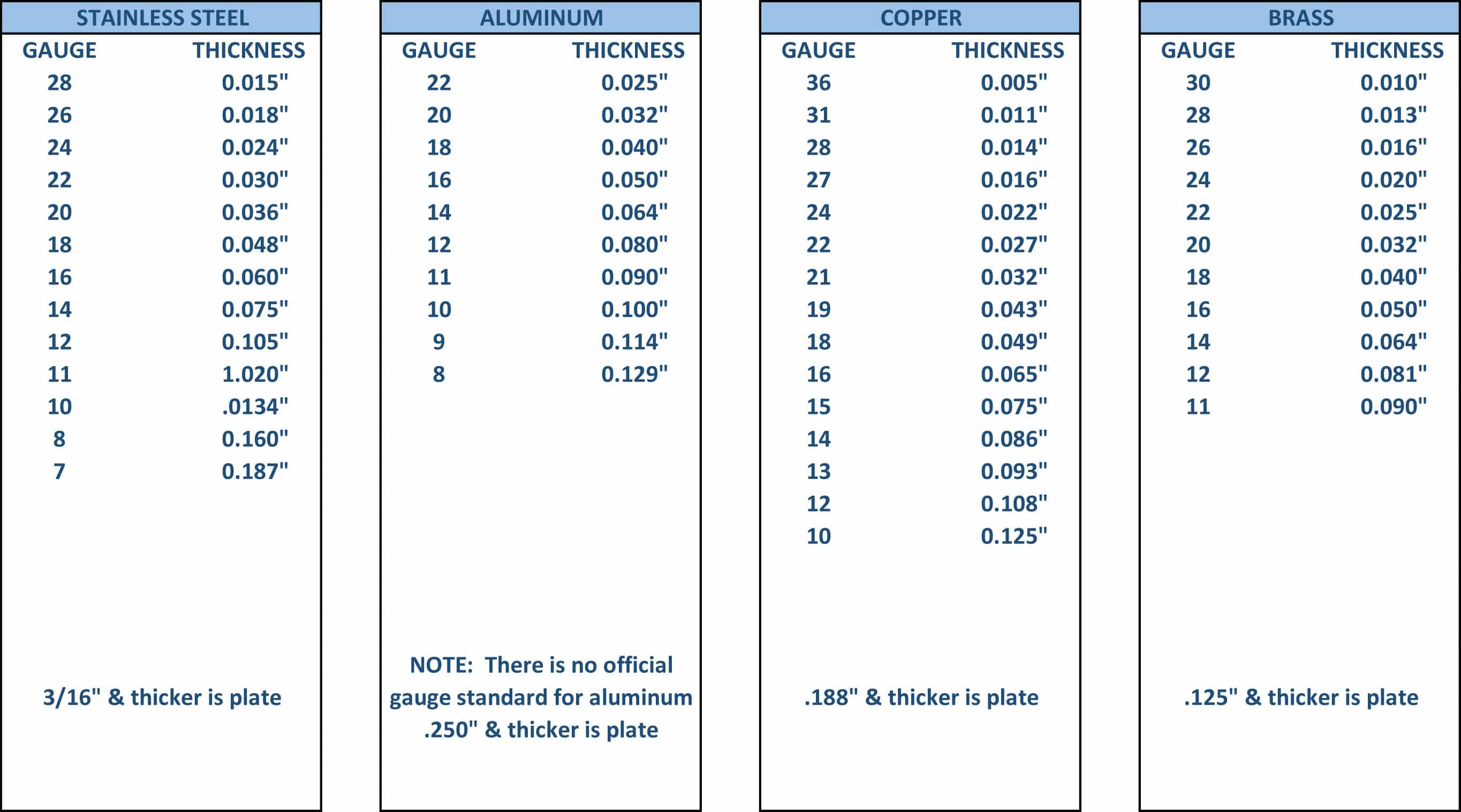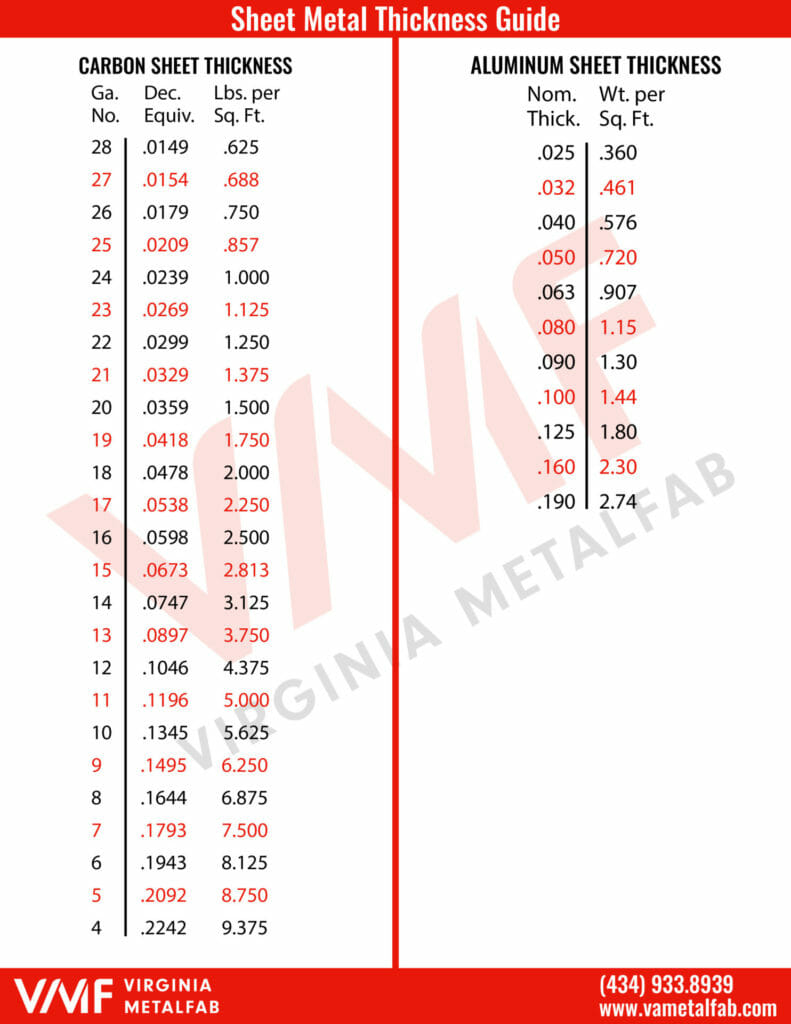Common Sheet Metal Thickness - 37 rows you can find the gauge to mm / inch conversion for sheet metal by the chart below. 38 rows the chart below can be used to determine the equivalent sheet thickness, in inches or millimeters, for a gauge number from. Typical thickness ranges are 0.5 to 6 mm for steel, 0.2 to 5 mm for aluminum, 0.4 to 6 mm for stainless steel, and 0.2 to 3 mm for. Or you can download the sheet metal gauge size.
38 rows the chart below can be used to determine the equivalent sheet thickness, in inches or millimeters, for a gauge number from. 37 rows you can find the gauge to mm / inch conversion for sheet metal by the chart below. Typical thickness ranges are 0.5 to 6 mm for steel, 0.2 to 5 mm for aluminum, 0.4 to 6 mm for stainless steel, and 0.2 to 3 mm for. Or you can download the sheet metal gauge size.
38 rows the chart below can be used to determine the equivalent sheet thickness, in inches or millimeters, for a gauge number from. Typical thickness ranges are 0.5 to 6 mm for steel, 0.2 to 5 mm for aluminum, 0.4 to 6 mm for stainless steel, and 0.2 to 3 mm for. 37 rows you can find the gauge to mm / inch conversion for sheet metal by the chart below. Or you can download the sheet metal gauge size.
Sheet Metal Gauge Thickness Chart Inches
38 rows the chart below can be used to determine the equivalent sheet thickness, in inches or millimeters, for a gauge number from. 37 rows you can find the gauge to mm / inch conversion for sheet metal by the chart below. Or you can download the sheet metal gauge size. Typical thickness ranges are 0.5 to 6 mm for.
Steel sheet metal gauge chart MS/ carbon steel thicknesses
Typical thickness ranges are 0.5 to 6 mm for steel, 0.2 to 5 mm for aluminum, 0.4 to 6 mm for stainless steel, and 0.2 to 3 mm for. 38 rows the chart below can be used to determine the equivalent sheet thickness, in inches or millimeters, for a gauge number from. 37 rows you can find the gauge to.
Sheet Metal Thickness Chart Sst
38 rows the chart below can be used to determine the equivalent sheet thickness, in inches or millimeters, for a gauge number from. Typical thickness ranges are 0.5 to 6 mm for steel, 0.2 to 5 mm for aluminum, 0.4 to 6 mm for stainless steel, and 0.2 to 3 mm for. Or you can download the sheet metal gauge.
Sheet Gauge Thickness And Weight Chart Steel Gauge Thickness
Or you can download the sheet metal gauge size. Typical thickness ranges are 0.5 to 6 mm for steel, 0.2 to 5 mm for aluminum, 0.4 to 6 mm for stainless steel, and 0.2 to 3 mm for. 38 rows the chart below can be used to determine the equivalent sheet thickness, in inches or millimeters, for a gauge number.
Metric Sheet Metal Thickness A Comprehensive Guide & Chart Hungthai
37 rows you can find the gauge to mm / inch conversion for sheet metal by the chart below. 38 rows the chart below can be used to determine the equivalent sheet thickness, in inches or millimeters, for a gauge number from. Or you can download the sheet metal gauge size. Typical thickness ranges are 0.5 to 6 mm for.
Gauge To Thickness Conversion For Common Sheet Metals, 58 OFF
Typical thickness ranges are 0.5 to 6 mm for steel, 0.2 to 5 mm for aluminum, 0.4 to 6 mm for stainless steel, and 0.2 to 3 mm for. Or you can download the sheet metal gauge size. 38 rows the chart below can be used to determine the equivalent sheet thickness, in inches or millimeters, for a gauge number.
Printable Sheet Metal Gauge Chart
Typical thickness ranges are 0.5 to 6 mm for steel, 0.2 to 5 mm for aluminum, 0.4 to 6 mm for stainless steel, and 0.2 to 3 mm for. Or you can download the sheet metal gauge size. 38 rows the chart below can be used to determine the equivalent sheet thickness, in inches or millimeters, for a gauge number.
Metric Sheet Metal Thickness Chart
Or you can download the sheet metal gauge size. 38 rows the chart below can be used to determine the equivalent sheet thickness, in inches or millimeters, for a gauge number from. Typical thickness ranges are 0.5 to 6 mm for steel, 0.2 to 5 mm for aluminum, 0.4 to 6 mm for stainless steel, and 0.2 to 3 mm.
Metal Sheet Thickness Gauge
37 rows you can find the gauge to mm / inch conversion for sheet metal by the chart below. Typical thickness ranges are 0.5 to 6 mm for steel, 0.2 to 5 mm for aluminum, 0.4 to 6 mm for stainless steel, and 0.2 to 3 mm for. Or you can download the sheet metal gauge size. 38 rows the.
Resources Virginia MetalFab
37 rows you can find the gauge to mm / inch conversion for sheet metal by the chart below. Typical thickness ranges are 0.5 to 6 mm for steel, 0.2 to 5 mm for aluminum, 0.4 to 6 mm for stainless steel, and 0.2 to 3 mm for. 38 rows the chart below can be used to determine the equivalent.
Typical Thickness Ranges Are 0.5 To 6 Mm For Steel, 0.2 To 5 Mm For Aluminum, 0.4 To 6 Mm For Stainless Steel, And 0.2 To 3 Mm For.
37 rows you can find the gauge to mm / inch conversion for sheet metal by the chart below. 38 rows the chart below can be used to determine the equivalent sheet thickness, in inches or millimeters, for a gauge number from. Or you can download the sheet metal gauge size.
